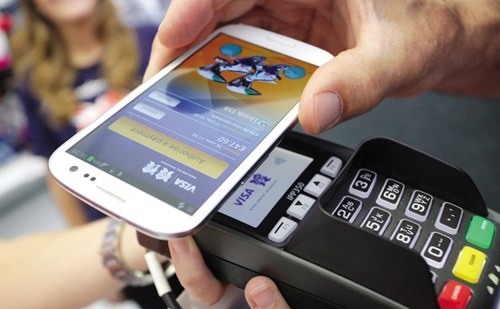

Technology groups, which believed that e-wallets would be the “major payment method of the future”, spent big money to develop e-wallet services.
However, contrary to all predictions, the expected e-wallet boom fizzled out, with Vietnamese preferring to pay by other means.
A State Bank report showed that Vietnam had 1.84 million e-wallets by the end of 2013, while the total transaction value had reached VND23.35 trillion, or $1.1 billion, a modest figure compared with the non-cash payment market.
Vietnamese, for example, had 66 million payment cards by 2013, with a total transaction value of $52 billion.
Nguyen Phan Anh, MA, a lecturer at the Trade University, noted that only a few e-wallet service providers were successful.
He noted that the majority of Vietnamese still prefer making payments in cash, while office workers are used to bank cards.
Some e-wallet service providers attributed the low demand to the slow development of e-commerce in Vietnam. A report of the Vietnam E-commerce Association showed that the total e-commerce value in 2013 was $2.2 billion, a small figure compared with the $12.3 billion worth of goods and service.
Also according to the association, only six percent of the transaction value was made through apps installed in smartphones.
The service providers have also blamed the underdevelopment of e-wallet services on the lack of a legal framework, which caused insecurity among customers about online transactions.
To date, only nine enterprises have licenses from the State Bank for providing services, but they all have been operating on a trial basis.
Nguyen Hoa Binh, chair of Peacesoft, the owner of NganLuong e-wallet brand, said after a period of focusing on online payment services which did not bring profits, he has decided to “turn to another direction”.
“Offering offline services will be the focus in the time to come,” Binh said. “The market is too small, and we need to go another way to develop.”
Peacesoft has marketed Mobile POS, a device that can turn smartphones into POS, which has much lower costs than the traditional POS.
M_Service, the owner of MoMo e-wallet brand, has successfully designed an app which allows remittances and receives money on both Android and iOS operating systems.
The app, together with the existing distribution network nationwide, will form a system of online services and offline shops.
Nguyen Ba Diep, CEO of M_Service, said he hopes in the future that with such a service parents in rural areas will be able to pay for their children’s studies in cities, while office workers could share lunch expenses through e-wallets.